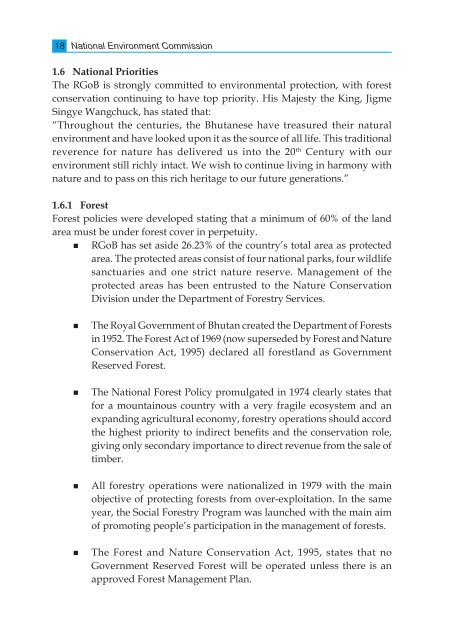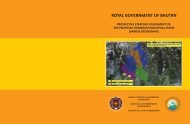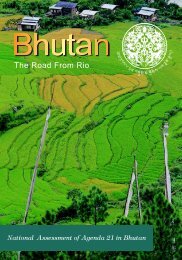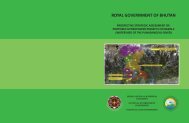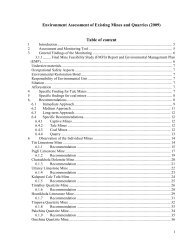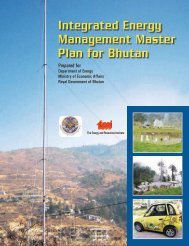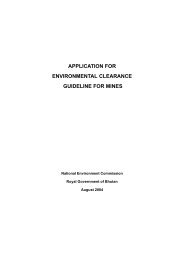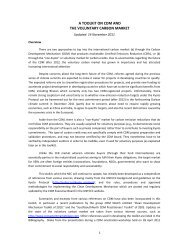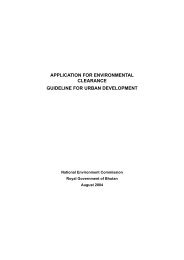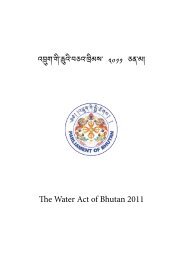Initial National Communication, under UNFCCC, September 2000
Initial National Communication, under UNFCCC, September 2000
Initial National Communication, under UNFCCC, September 2000
Create successful ePaper yourself
Turn your PDF publications into a flip-book with our unique Google optimized e-Paper software.
18 <strong>National</strong> Environment Commission<br />
30<br />
1.6 <strong>National</strong> Priorities<br />
The RGoB is strongly committed to environmental protection, with forest<br />
conservation continuing to have top priority. His Majesty the King, Jigme<br />
Singye Wangchuck, has stated that:<br />
“Throughout the centuries, the Bhutanese have treasured their natural<br />
environment and have looked upon it as the source of all life. This traditional<br />
reverence for nature has delivered us into the 20 th Century with our<br />
environment still richly intact. We wish to continue living in harmony with<br />
nature and to pass on this rich heritage to our future generations.”<br />
1.6.1 Forest<br />
Forest policies were developed stating that a minimum of 60% of the land<br />
area must be <strong>under</strong> forest cover in perpetuity.<br />
RGoB has set aside 26.23% of the country’s total area as protected<br />
area. The protected areas consist of four national parks, four wildlife<br />
sanctuaries and one strict nature reserve. Management of the<br />
protected areas has been entrusted to the Nature Conservation<br />
Division <strong>under</strong> the Department of Forestry Services.<br />
<br />
<br />
<br />
<br />
The Royal Government of Bhutan created the Department of Forests<br />
in 1952. The Forest Act of 1969 (now superseded by Forest and Nature<br />
Conservation Act, 1995) declared all forestland as Government<br />
Reserved Forest.<br />
The <strong>National</strong> Forest Policy promulgated in 1974 clearly states that<br />
for a mountainous country with a very fragile ecosystem and an<br />
expanding agricultural economy, forestry operations should accord<br />
the highest priority to indirect benefits and the conservation role,<br />
giving only secondary importance to direct revenue from the sale of<br />
timber.<br />
All forestry operations were nationalized in 1979 with the main<br />
objective of protecting forests from over-exploitation. In the same<br />
year, the Social Forestry Program was launched with the main aim<br />
of promoting people’s participation in the management of forests.<br />
The Forest and Nature Conservation Act, 1995, states that no<br />
Government Reserved Forest will be operated unless there is an<br />
approved Forest Management Plan.


